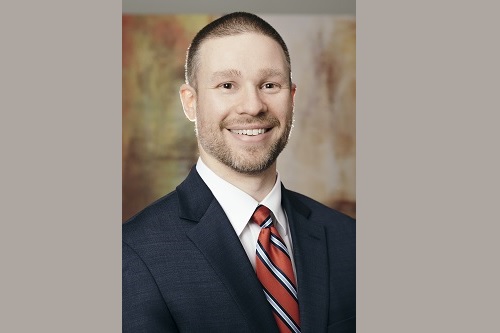A wealth manager discusses his thoughts on hard work, inclusiveness, and getting what you give

As part of an entrepreneurial family, Jay Dowhaniuk had known from a young age that he would like to be in business for himself. As he entered university to major in finance — a subject recommended by his father and grandfather — he already had first-hand knowledge of how that way of life paid off with hard work and determination.
“In my second year of university I entered the Co-Op program with RBC Royal Bank on a part-time basis,” Dowhaniuk said. “I received excellent hands-on training and insight into the world of banking and finance, but I always knew I didn’t want to work for the bank for the rest of my life.”
After earning his business degree with a major in finance in 2005, he joined a veteran financial advisor with an independent firm — Raymond James — where he quickly realized there was much more he had to learn.
“My mentor, Paul Johnson, started in the financial-services industry in 1969, so I could not have asked for a more experienced guide,” Dowhaniuk said. “The most important thing he taught me was: ‘if you look after your clients, they will look after you.’ This philosophy is still our guiding principle to this day.”
Today, Dowhaniuk is a wealth manager at Raymond James. He credits his success to Johnson’s philosophy, which has brought not only profit but also deep satisfaction.
“The most fulfilling part is definitely the strong personal relationships we develop with clients,” he said. “My business partner, Lori Samuels, and I truly care about our clients to the point where we view them as part of our family, which they definitely appreciate. By controlling the number of individuals and families we work with, we’re able to see each of them as a real person to connect with, and not just another portfolio.”
Within the practice, connecting with each client personally means recognizing every person in the wealth planning process as a stakeholder and active participant. To that end, they have actively worked to create a more inclusive wealth management process — which has been particularly helpful for a valuable, yet often overlooked group.
“For a long time, we have invested heavily in continuing to empower female investors,” Dowhaniuk said. “We have many new couples and single women becoming clients because the female client hasn’t felt included in the wealth management process at their previous firm. It’s obvious that women will ultimately control most of the wealth going forward so their involvement in the process is crucial now and in the future.”
Aside from the blowing winds of inclusiveness, Dowhaniuk is concerned about an erosion of independence in the wealth industry. One could say a life spent leaning into entrepreneurship make him naturally adverse to the alternative. But to him, it’s not that simple.
“Thirty years ago, financial advisors who built up successful practices took pride in the ownership of that practice,” he said. “Today, non-independent financial advisors merely lease their practices and have turned into employees of their respective firms. My advice to any financial advisor: don’t lose sight of how important book ownership really is to our industry.”
Related stories:
'Why I had to change my success strategy'
Why millennial advisors are in it for the long haul



